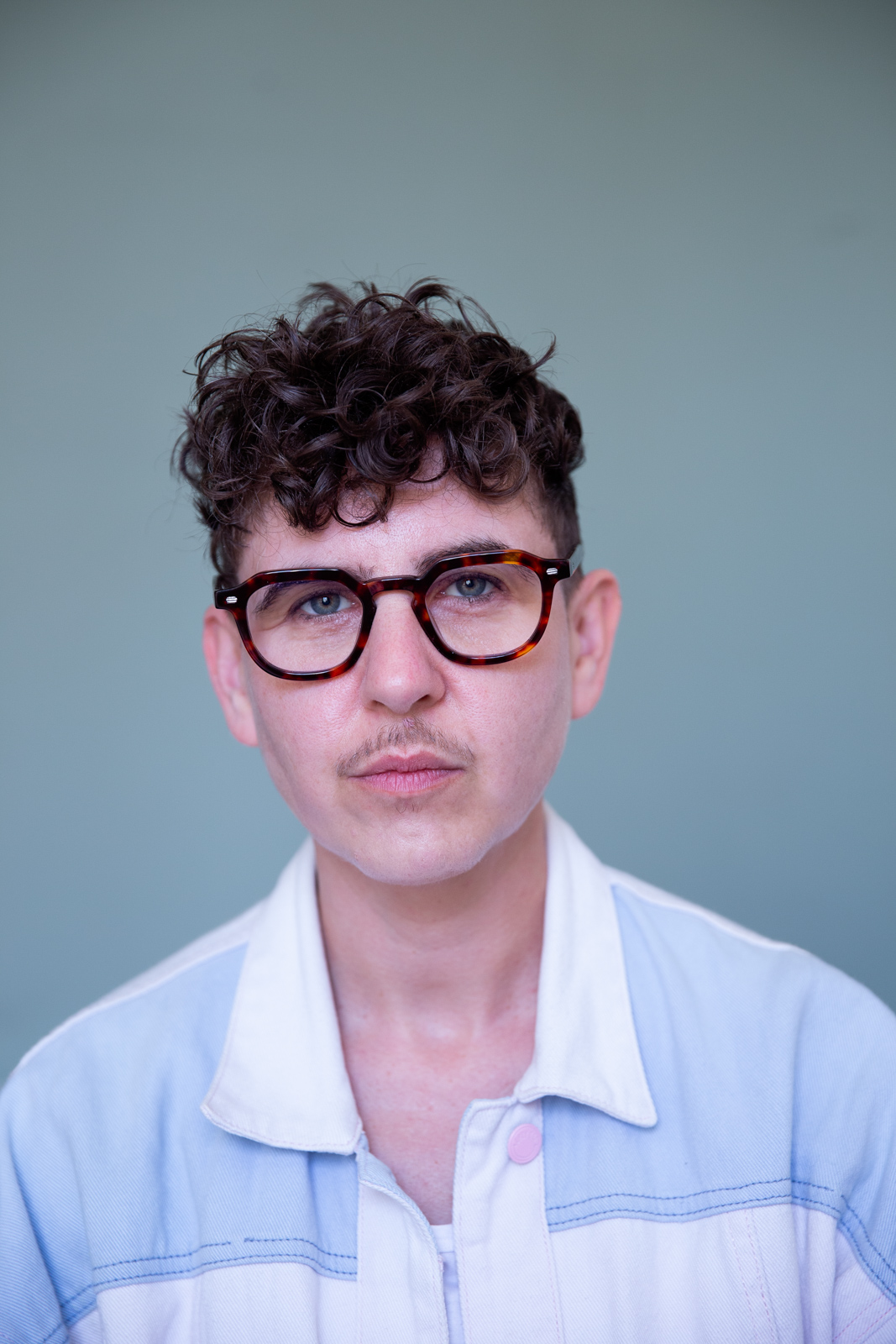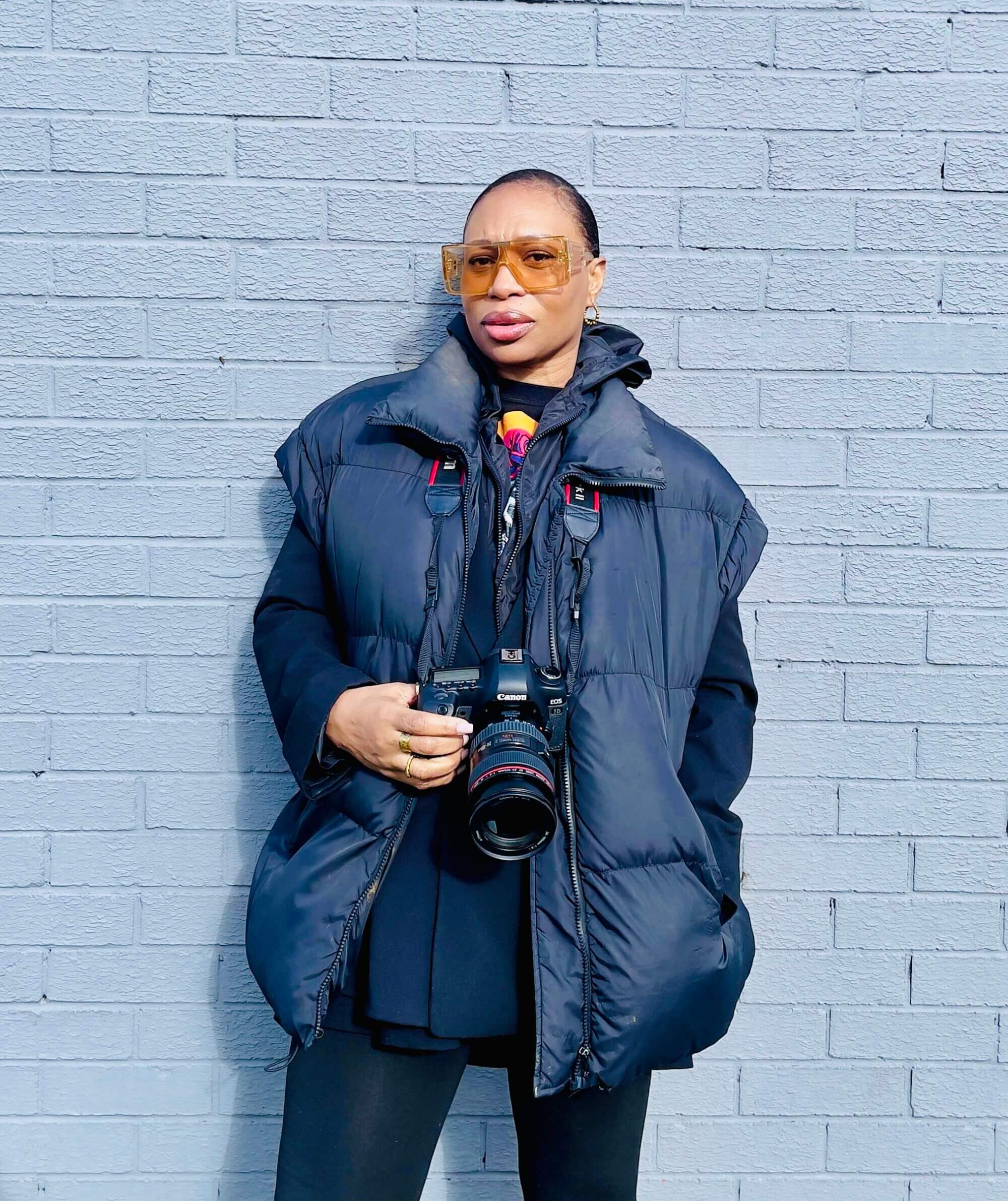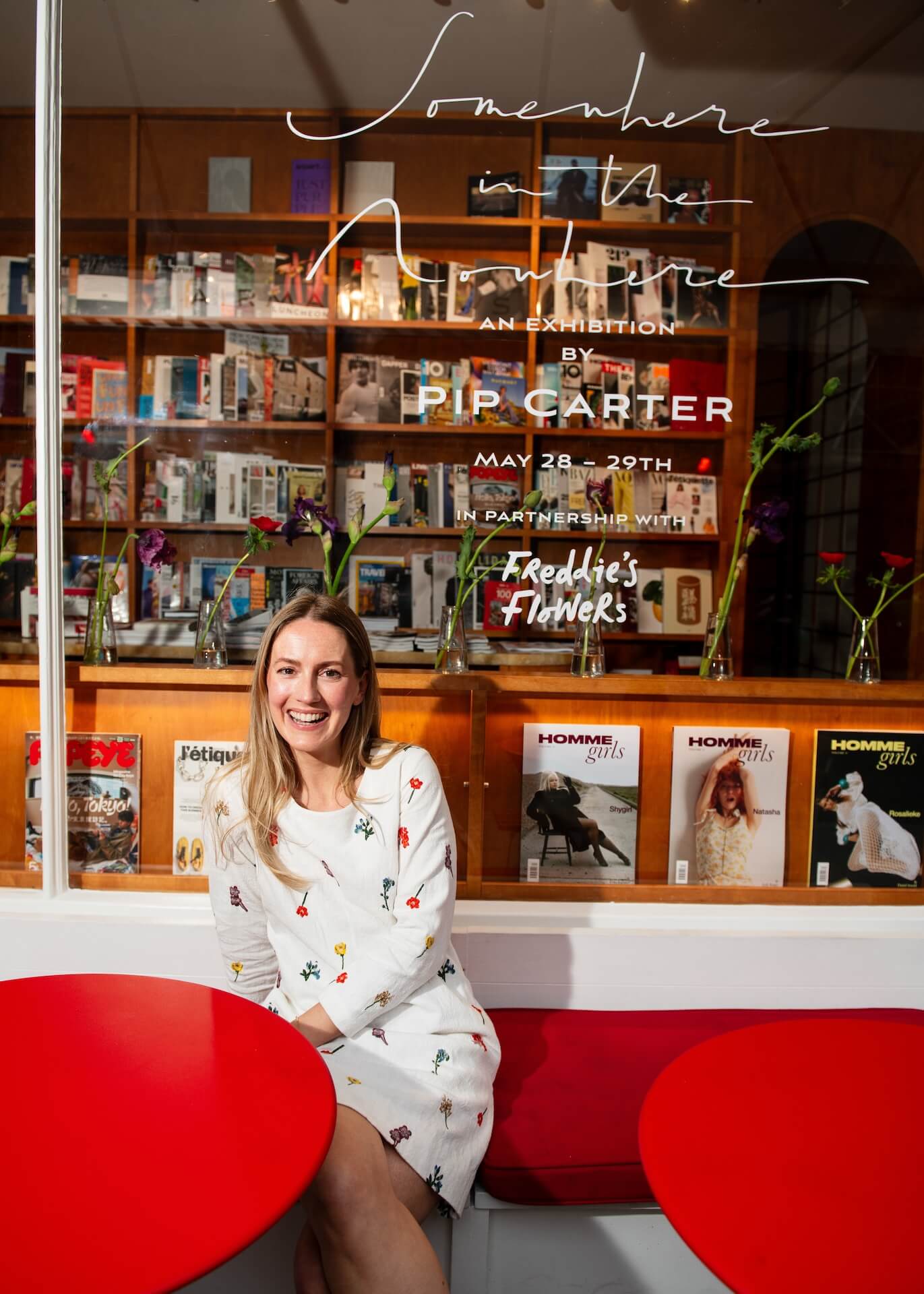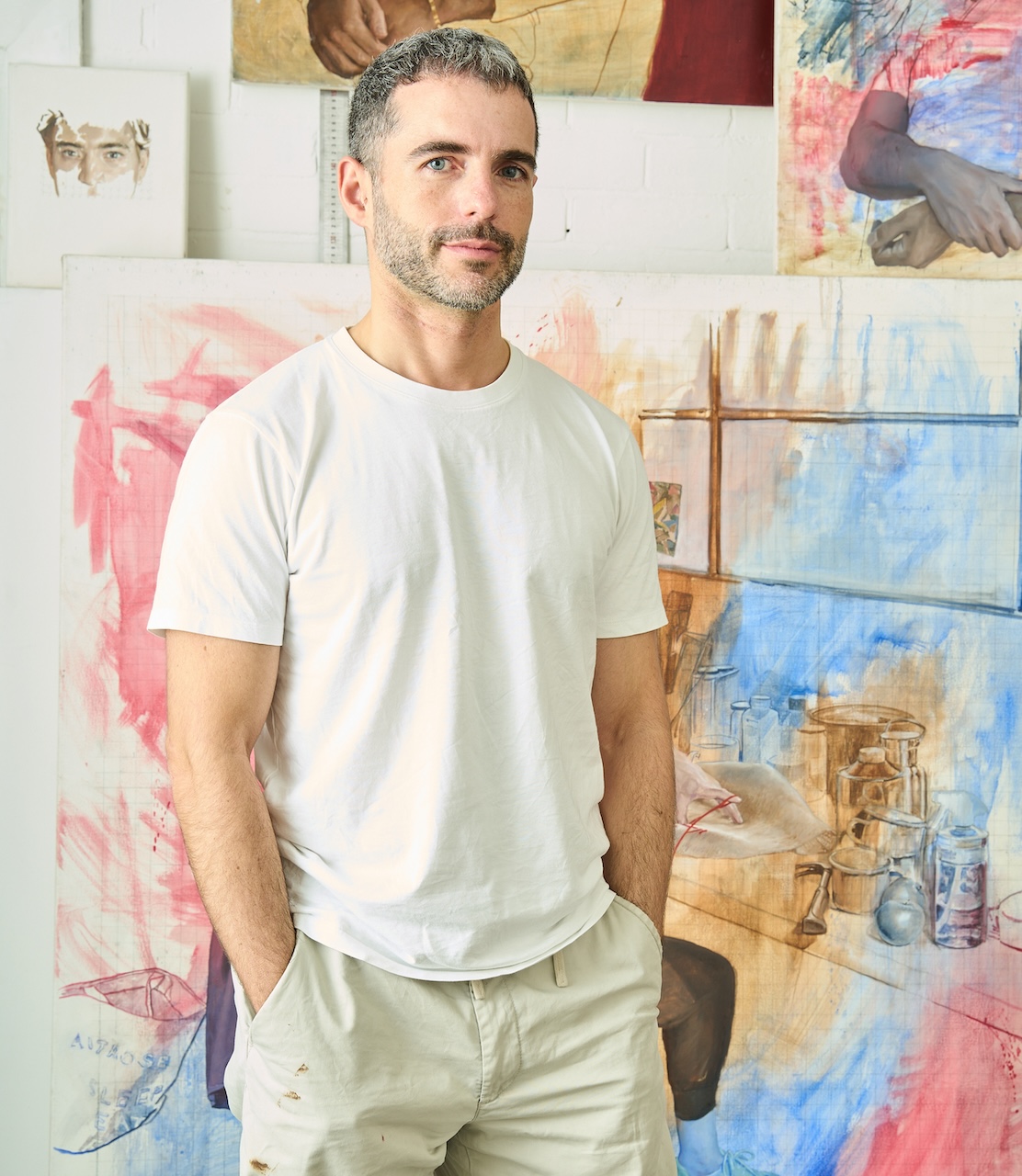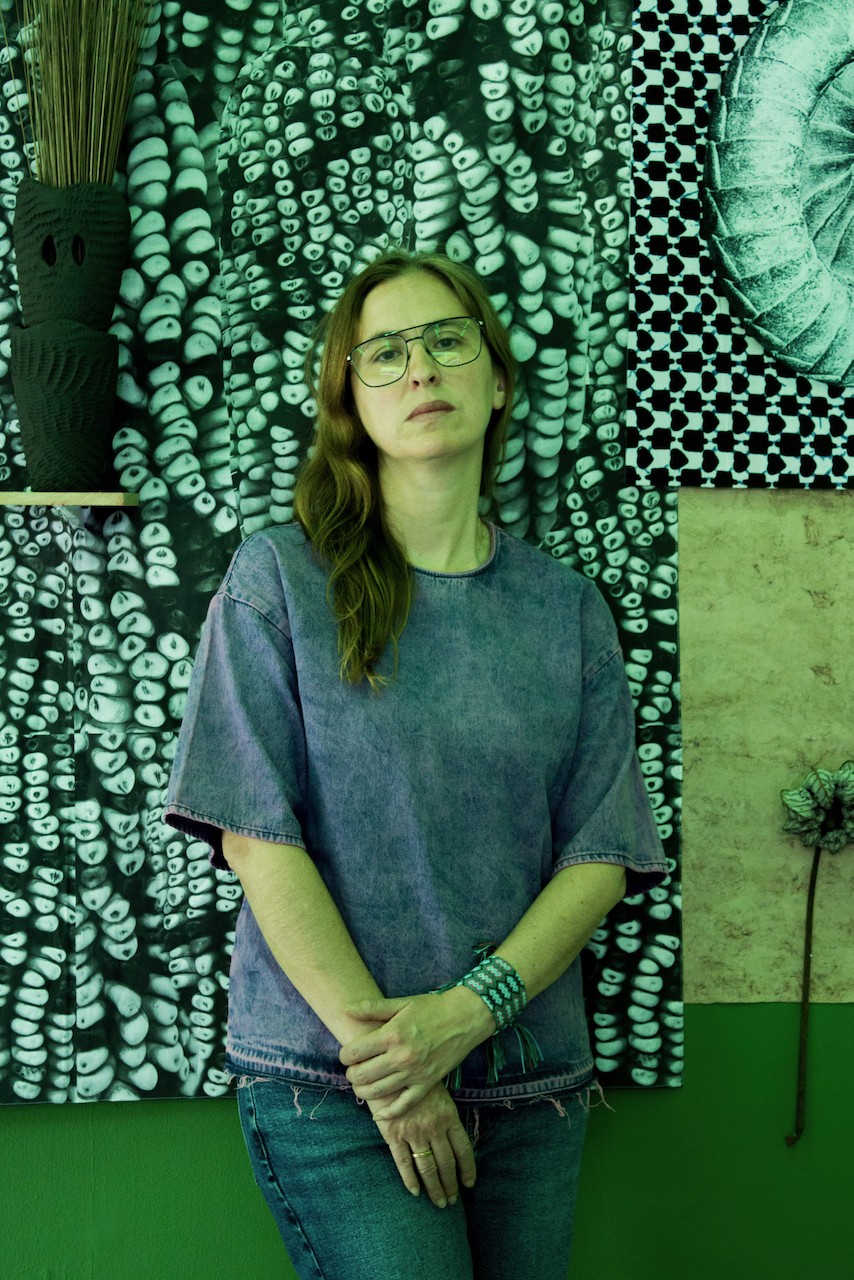Spotlight Elsa James

WATCH
WATCH

James’s Champion for The Wick is Sally Shaw, Director of Firstsite, where James was an artist in residence prior to her current solo exhibition. “I was introduced to Elsa James by another amazing artist – Harold Offeh. I was speaking at an Arts Council event in Cambridge and I was early days finding my feet at Firstsite. Harold said, in a nutshell, you need each other. He was right. Working with Elsa over the last seven years has been an amazing privilege. Elsa has supercharged energy and dedication to her work and the voices and people she is tenderly, respectfully and unequivocally sharing her platform with. In many ways, she has intensified my own creative spirit through our conversations, just as much as I hope I have made a small contribution to empowering Elsa on her own journey. Working with Elsa is a reminder of why being creative – every day – and talking and thinking about the big subjects is critical to building a better future for everyone. Nothing should be shied away from. Everything should be questioned. Life is to be re-collaged continually – and especially in collaboration with those who occupy our past, present and future.”
James has also constructed a studio space as part of the exhibition, where on selected days through the show’s run she has been making Afro Dada works – “a recent development and project in my practice that merges Afrocentric culture with the whimsical, disruptive spirit of Dadaism”, she explains. Allowing visitors to be fully immersed in her process, Afro Dada “explores rupture, erasure, fragmentation, and displacement within Black British, Caribbean, and West African identities, shaped by the British Empire and colonial legacies. Through experimental methods like mark-making, sculpture, and collage, I interrogate these speculative and shifting identities.”
These experiments with techniques resonate with a constellation of Black artists who have influenced James, including Wangechi Mutu, Glenn Ligon and Jeanette Ehlers, to name a few. James also notes music as “another vital force in my process—musicians like Jill Scott, Solange, Miles Davis, and, more recently, Little Simz help shape the emotional and sonic textures of my work.” Sound often appears directly with James work too, either in performances such as Free to Flourish, (at Tate Britain) or in the sound installation that forms part of Beyond the Hold, a new work presented at Firstsite, filling the space and creating a fully immersive environment that dynamically reimagines the archival and shows how the past still shapes us today.
About the champion

Sally Shaw MBE is Director of Firstsite, Colchester where she has been for nine years. Sally’s focus on exceptional quality contemporary art, in synergy with place-based audience generation grounded in community-led co-design has led Firstsite to be recognised nationally and internationally for the gallery’s response to the COVID-19 pandemic and to win Art Fund Museum of the Year in 2021. Along with major exhibitions by leading artists such as Sarah Lucas, Grayson Perry, Everton Wright and Elsa James, Firstsite’s agile and creative projects have included free digital art packs for families across the nation during COVID-19 – accessed by more than 100,000 families. Firstsite’s innovative Holiday Fun programme has now provided more than 27,000 free meals to children and families in need during school holidays and as a result has engaged thousands of children in art and creativity at Firstsite for the first time. These initiatives saw Sally recognised with an MBE in the Queen’s Birthday Honours list for Services to the Arts during the COVID-19 Pandemic. Sally has also been invited to be a Fellow of the University of Essex Human Rights and Law Centre and was the University of Essex Honorary Fellow 2023. Sally is Chair of Arts Council England South East Area Council and National Council member for Arts Council England. Previously Sally was Head of Programme at Modern Art Oxford, Deputy Head of Culture for the Mayor of London, Boris Johnson, Chief Curator for London Underground, Director of Media Art – Bath and Residency Programme Manager at Spike Island, Bristol. She has also established several independent projects and programmes including an artist residency programme in an open prison in Gloucestershire.
“Working with Elsa is a reminder of why being creative – every day – and talking and thinking about the big subjects is critical to building a better future for everyone.”








